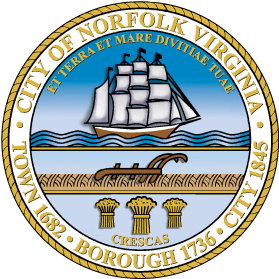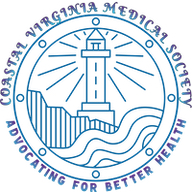And Surgeons
Access To Care

One of the most significant problems in healthcare today and particularly in our area is lack of access to care. Multiple factors contribute to this serious problem.
Lack of access to healthcare in Virginia, as in many parts of the United States, can be attributed to a combination of economic, geographic, and systemic factors. Addressing these challenges requires targeted interventions and policy reforms at both the state and local levels. Here's an overview of some primary issues and potential solutions:
- Economic Barriers: High costs of healthcare services, insurance premiums, deductibles, and out-of-pocket expenses can make healthcare unaffordable for many Virginians, particularly those who are uninsured or underinsured.
- Solution: Expand Medicaid eligibility to cover more low-income residents. Increase state subsidies or provide state-funded insurance options to make healthcare and insurance more affordable.
- What can we do? Provide proposals for changes in the laws and policies that contribute to high costs as much as we can.
- CON Laws: Antiquated Certificate of Need Laws that have been proven to raise healthcare costs and reduce quality of care are hindering our entire system of healthcare in Virginia. They are creating a severe shortage of hospital beds, overcrowding of emergency rooms, and lack of competing medical and procedural clinics that would provide greater access to care at lower cost.
- Solution: The state legislature needs to remove these laws as soon as possible.
- What can we do? Submit proposals to remove CON laws. Talk to our elected representatives about it. Explain to patients why they should be removed.
- Rural Healthcare Access: Virginia's rural areas often suffer from a shortage of healthcare providers, leading to limited access to care. Rural hospitals are also facing financial strain, with some at risk of closure. What can we do?
- Solution: Invest in telehealth and mobile health clinics to extend services to remote areas. Provide incentives for healthcare professionals to practice in underserved regions, including loan repayment programs or tax benefits.
- What can we do? Write proposals to accomplish this.
- Healthcare Workforce Shortages: There is a shortage of healthcare professionals in various specialties, including primary care, mental health, and dental care, which limits access to services.
- Solution: Expand medical and nursing education programs within the state, offering scholarships or grants to students who commit to working in underserved areas of Virginia post-graduation.
- What can we do? Partner with recruitment organizations. Develop a Recruitment Fund to support these efforts. Offer scholarships to residents who agree to establish their practice here locally.
- Insurance Coverage Gaps: Despite the expansion of Medicaid, there are still Virginians who fall into coverage gaps, earning too much to qualify for Medicaid but too little to afford private insurance.
- Solution: Consider creating a public option or state-funded health insurance program to provide affordable coverage to those who fall into this gap. Implement state-level reforms to stabilize the insurance market and reduce premiums.
- What can we do? Partner with insurance companies who agree to do this. Try to get state subsidies for this.
- Systemic and Social Determinants: Factors such as education, employment, housing, and transportation can impact health outcomes and access to care. Marginalized communities often face systemic barriers to accessing healthcare.
- Solution: Implement policies that address the broader social determinants of health. This could include affordable housing initiatives, improved public transportation systems, and programs that promote economic stability.
- What can we do? Incentivize and/or help provide funds at least for transportation and public health education.
- Mental Health and Substance Use Disorder Services: There is a growing need for mental health and substance use disorder services, but many Virginians face difficulties accessing these services due to shortages of providers and treatment facilities.
- Solution: Increase funding for mental health services, expand Medicaid coverage for mental health and substance use disorder treatment, and incentivize private providers to offer these services.
- What can we do? Write proposals for these services to the state legislature.
- Cultural and Linguistic Barriers: Non-English speaking populations and cultural differences can pose barriers to accessing healthcare services.
- Solution: Increase the availability of translation and interpretation services in healthcare settings. Train healthcare providers on cultural competency to ensure respectful and effective communication with patients from diverse backgrounds.
- What can we do? Find resources to help train healthcare professionals on language and culture.
Addressing these challenges requires a coordinated effort among state and local governments, healthcare providers, insurance companies, and community organizations. By implementing targeted solutions, Virginia can work towards improving access to healthcare for all its residents, regardless of their economic status, geographic location, or background.
Your Comments
Please add your comments or suggestions on any past or future events in the box below.
Newsletter
Stay up to date on issues and news you need to know. The CVMS Bulletin is published monthly and will list concerns that local physicians have expressed about healthcare in Coastal Virginia and how we can make it better. We will provide potential solutions and let you know what is happening behind the scenes to help solve these problems. Membership is not currently required to receive the newsletter.



Recent Articles
-
CVMS-Bulletin-November-2025
Nov 28, 25 08:23 AM
CVMS Newsletter - Medical News and Commentary -
CVMS Membership Drive 2025
Oct 16, 25 10:53 AM
Information about the membership importance and benefits. -
Letter to Governor Youngkin re: COVID-19 Vaccine Recommendations
Oct 16, 25 10:45 AM
The Honorable Glenn Youngkin
Office of the Governor
P.O. Box 1475
Richmond, VA 23218
Dear Governor Youngkin,
On behalf of the Coastal Virginia Medical Society (CVMS), based in the Hampton Roads area of Sou…
Sign Up for the New CVMS Bulletin
Things You Need to Know
News Releases
from the
Virginia Beach Health Department
Norfolk Public Health Department
Chesapeake Health Department
The Roman Fasces was a symbol of strength and power occurring as a result of many binding together. It was made of multiple elm or birchwood rods about 5 feet long tied together and sometimes including an axe. It was carried by attendants to soldiers or powerful figures in ancient Rome. For us, it symbolizes that we are stronger and more powerful if we bind together in supporting our goals.





